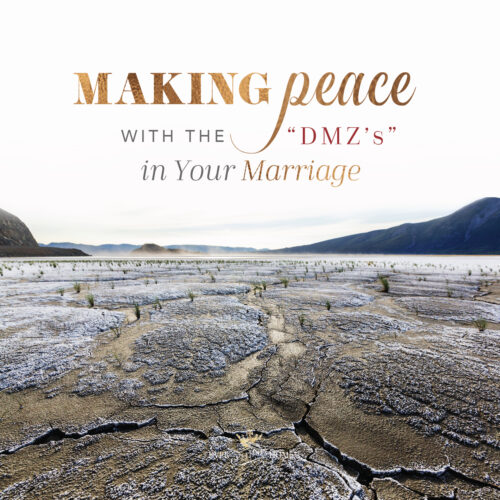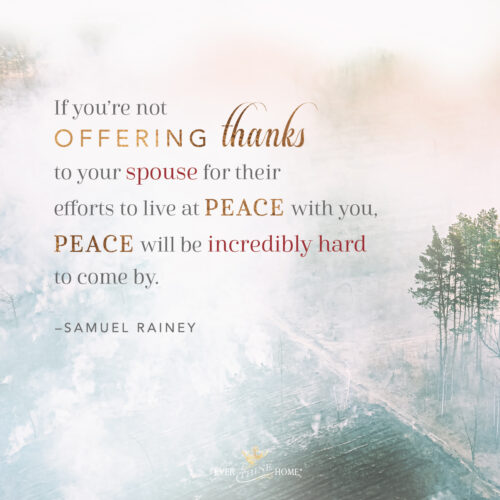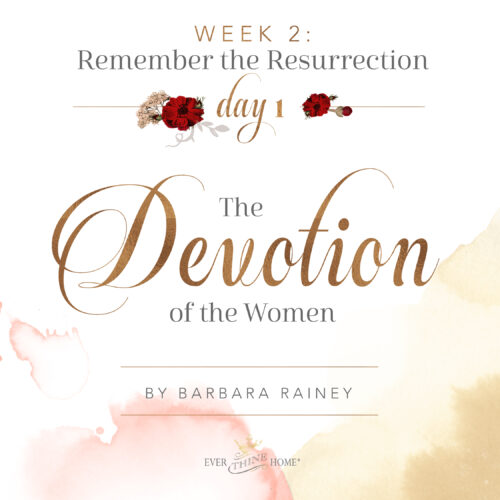
by Samuel Rainey
Amy came to me for counseling several years ago to get help with the growing disconnect in her marriage. She came alone because her husband refused to come with her. She described his reasoning pretty simply: “Steve had an affair eight years ago. We never talked about it then, and we’re not going to talk about it now.” What neither of them knew was that they had created a “DMZ” in their marriage.
DMZ is short for “demilitarized zone,” which describes an area of physical land that serves as a buffer between countries at war. Currently, the most notable DMZ is between North and South Korea. This strip of land was created at the end of the Korean War over 70 years ago as part of an armistice agreement. Its existence helps both countries operate independently of each other, even though they are technically still at war.
Unfortunately, the history of the Korean peninsula resembles the “emotional land” in many marriage relationships. In almost every marriage I’ve encountered (including my own!), conflict is a common occurrence. However, when no resolution is reached in these conflicts, couples create an emotional DMZ between each other.
DMZ’s are more about a ceasefire than they are about peace. But marriages will not thrive with DMZ’s. The moment a story or conflict is placed in the “off limits” category, knowingly or unknowingly, the couple has declared war on love, trust, and forgiveness — all components of thriving relationships. When a DMZ is established, the individual parties direct their attention primarily towards survival, and are only able to be around their spouse from an emotional distance.
I have seen couples create DMZ’s over finances, differing parenting styles and goals, time spent with in-laws, spiritual or church matters, and challenges relating to their sexual relationship. These issues get declared “off limits.” I’m not all that studied on international diplomacy, but ultimately the resolution of a DMZ comes down to one word: Peace. Enemies must make peace with one another for the fighting to end. The same is true for couples.
Here’s how you start the process of discussing a topic that is off limits—a DMZ—in your marriage.
1. Take off your shoes (literally).
The DMZ in your marriage is holy ground. It’s where you feel pain, confront death, and seek hope. When Moses met God as the burning bush in Exodus 3, God told him to stop walking closer, and remove his sandals because he was standing on holy ground.
On one hand, this seems like an odd request. But think about it for a moment. When you are walking around outside without shoes (assuming the territory is somewhat rugged), you tend to be more careful with your steps. Your movements are slower and more deliberate. You become more aware of the jagged rocks or other objects that might cause pain to your bare feet.
When you engage in an attempt at resolving a past hurt with your spouse, take off your shoes. You might be surprised at what this symbolic act of “taking care” will do to your conversation. Let it remind you to be more aware of what’s happening between you and your spouse.
2. Unfold your arms.
In the sermon on the mount, Jesus talks about storing up treasures in heaven, not on earth. We can apply Matthew 6:21 to much of our lives: “For where your treasure is, there your heart will be also.” When we engage in the DMZ’s of our marriage, we will confront where our treasures are, and our body language can illuminate that for us.
By crossing your arms, you are physically signaling that you’re protecting your heart, yourself. Defensiveness is a support of DMZ’s, not a way to make peace.
Protect what is valuable at all cost! When you unfold your arms, you are opening yourself up to your spouse. Treasure peace, not safety.
3. Listen twice, speak once.
Proverbs 18:13 says this loud and clear: “If one gives an answer before he hears, it is his folly and shame.”
The reality is most of us do not listen very well. Listening is a posture of sacrifice. When we listen, we tell the other person that they are important, valuable, and worth being heard. Unfortunately we’re usually more interested in forming our rebuttal (defensive posture) than allowing the words, emotions, and energy to get to our heart.

The cardinal rule in woodworking is to measure twice, and cut once. When we speak, we cut. You cannot undo a cut on a piece of wood just like you can’t unsay words that you’ve said.
Before you respond with what you want to say, reflect back to the other person the actual words they spoke and ask if you heard everything correctly (i.e., “I heard you say you feel like I don’t like you, and that I care more about work than I care about you. Is that right?”). Make sure that you’ve listened to what they have to say, and that you’ve heard it. Don’t be a fool (as the Proverbs warn) by speaking before you’ve listened.
4. Slow down.
DMZ’s are established because of conflict, deep pain, and emotionally fearful interactions. One couple I met with saw me weekly for three months of counseling to resolve their DMZ about in-laws! I thought they had come to a peaceable solution when the husband decided to tear it all down with his comment of, “I’ll believe it when I see it.” In one moment, he undid all the work they’d been doing. If he would have slowed down and measured his words, he might not have said this.
Resolution and peace take time. It also requires you to slow down (remember point one about removing your shoes!) so that you don’t restart the war.
Here is one practical way to slow down: Take deep breaths. Decrease your heart rate. Increase blood flow to your body.
Studies have shown that when your heart rate gets above 100 beats per minute, your brain is unable to effectively process social interactions. You will miss out on vital information if you’re going too fast or if your heart is racing (this is called “getting flooded”). Relax your jaw, your fists, and your breath. It may sound hokey, but slowing your heart rate will better allow you to view the other person as a friend, not a foe.
5. Drop your weapons.
You don’t walk into a peace treaty meeting with a machine gun. You won’t get very far in your attempts at peace with your spouse by bringing the relational weapons you are so adept at using. It’s really hard not to bring and use them when it appears that your spouse is not following the same guideline.
Remember this: When Jesus was betrayed and the soldiers came to the garden to arrest him, the disciples were ready to fight. At least one of them did, cutting off the ear of a soldier. What did Jesus do in response? He healed the man’s ear. If we are to become like Christ (Romans 8:29), practice offering a healing touch when a weapon has been used.
What are the weapons you use in marriage? Contempt? Stonewalling? Name calling?
Speaking the truth without love or care? Avoidance? Manipulation? Control? Rage?
Regardless of the weapon you use, leave it at the door. Perhaps even write it down and leave that piece of paper outside the room as a symbol of this action.
6. Practice gratitude.
The number one antidote to the poison of bitterness, resentment, and contempt is gratitude. Be thankful. Express your gratitude. Exhaust your spouse with your praise. Be specific about what you appreciate about them. Let them know why you’re so thankful.
If you’re not offering thanks to your spouse for their efforts to live at peace with you, peace will be incredibly hard to come by. Be wary of how entitlement cheats gratitude (“she should know better…”, or “I shouldn’t have to tell you this…”). If you can’t find something to be thankful for, the issue is with you, not the other person.

The presence of a DMZ on the Korean peninsula shows that the two countries remain in perpetual war with each other. Sure, there is no current fighting taking place, but don’t mistake that for peace. Peace will happen when they remove the line and agree to live together without the battles, conflicts, and violence that they are used to experiencing with each other.
As Paul tells us in Romans 12:18, “so far as it depends on you, live peaceably with all.” It only takes one person to transform a marriage. It does not take two. I’ve seen it over and over again.
When one person offers peace to an unwilling and defensive participant it changes the relationship. This is the invitation for you and your marriage.
Remove the DMZ line. Don’t wait for the other person to change first, they are likely waiting for the same thing.
Samuel Rainey is a marriage and family therapist.






